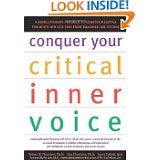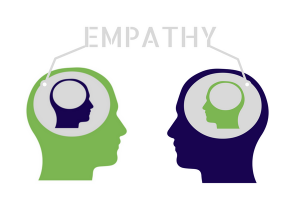The Critical Inner Voice and Addiction
It would be hard to overstate the massive impact of this past year’s pandemic on individuals’ mental health. Last August, the Centers for Disease Control reported results of a survey that showed anxiety 
disorder symptoms in 2020 to be three times those reported in the same period of 2019, and depressive disorder about four times that of 2019.In this same survey, about 13.3 percent of respondents reported starting or increasing substance abuse.
There is no doubt the mental strain of this global emergency has been particularly hard on those who have experience with addiction.
Last spring, a survey conducted by Addiction Policy Forum of more than 1,000 Americans with substance use disorders (SUDs) found that 20 percent experienced an increase in their or a family member’s substance use since the start of the pandemic. More than a third of respondents additionally reported changes or disruptions in accessing treatment or recovery support services during Covid-19. Similarly, an analysis by Millennium Health of more than 500,000 urine drug test results showed significant increases in the use of non-prescribed fentanyl, cocaine, heroin, and methamphetamine during Covid-19.
The pain-and anxiety-inducing circumstances of coronavirus can increase people’s personal risk for substance use. As one writer put it in an article about her own relapse during Covid-19, “I was using the alcohol to distract myself — from the fear that loved ones would die; from the fear that I would lose my job and might not be able to get another one; from the fear that hospitals were going to run out of their limited supplies.”
In addition to a chilling sense of uncertainty, many people are coping with the isolation felt from social distancing. Studies have shown feelings of loneliness to be stronger in drug abusers, which may increase their probability of “taking high risk behaviors and abusing drugs.” In addition, social estrangement has been linked to increased instances of relapse in recovering addicts.
Many people with SUDs have felt concern over getting access to in-person treatment during Covid-19. Thankfully, treatment centers and groups are still very much available, with many, including Alcoholics Anonymous turning to digital platforms to provide needed support and assistance. Yet, as people find themselves spending more and more time in isolation, it’s important to consider the internal thought processes that may be driving them toward risky and self-destructive behavior.
Every person possesses an internal enemy that feeds them a stream of self-critical and self-destructive thoughts.
This “critical inner voice” can be incredibly powerful when it comes to addiction and tends to run particularly rampant when someone is in isolation. This internal enemy fills our heads with self-doubt and self-hatred, attacking us in various areas of our lives be it our careers, our relationships, our identity, or our very sense of self-worth.
Our critical inner voice preys on our setbacks and questions our successes. It may fill our heads with thoughts like, “You’re so annoying. No one misses having you around.” “You’re constantly messing up. How stupid can you be?” “You can’t handle all this stress. You’re too weak.” Once it’s dragged us through the mud, an alluring “voice” may chime in, soothingly suggesting, “Just take a pill to help you calm down” or “have one more drink. You really need it today.”
Our inner voice can make us feel like we’re in control or doing something kind toward ourselves by giving in to an addictive impulse. However, the minute we listen to its advice, it tends to turn on us. “You’re so weak. You messed up again. You’re such a failure. How could you do this?”
Most people can identify how this inner critic punishes them for messing up or indulging in addictive behavior, but they don’t realize just how sneaky it can be in terms of offering seductive and seemingly comforting messages that entice them to indulge in the first place. That is why it can be helpful to get to know the patterns of this internal enemy and notice when it first starts to infiltrate our thinking. We can then meet this voice with a combination of resistance, strength, and self-compassion.
The first thing to recognize is that the conditions created by the pandemic leave ample room for this voice to get louder. All of us should be aware of the dooming and destructive tone it may take toward our circumstances, darkening our outlook and distorting our sense of reality. “You can’t handle this. You need to escape.” “You don’t have anyone. You’re such a loser.” “Nothing is going to get better. You should just give up.”
If we can identify the critical inner voices that govern our habit patterns, we can begin to challenge their dictates and adopt more constructive ways of dealing with emotional pain.
We can start by paying close attention to when these voices arise. Is it after a certain amount of time spent alone? While reading a stressful piece of news? During a long or challenging workday? Following a strained interaction with a partner? These voices may at first seem friendly, calming, convincing, or reasonable, but we should regard them the way we would a tricky and deceptive villain ready to pounce.
As we identify the internal and external triggers driving our actions, we can begin to externalize these inner voices and treat them as an outside enemy. Another way to do this is by writing down these voices in the second person as “you” statements. “You need a drink to relax. You are never going to feel better without it. No one cares about you.” This further helps us to separate our critical inner voice from our real point of view.
After writing down our voices, we can respond with realistic and compassionate statements. We should write these in the first person as “I” statements. Treat this exercise as if you were talking to a friend going through or saying the same thing. “It’s okay for me to struggle, but that doesn’t make me weak and doesn’t mean I’m not strong. I’m going through something tough, but it will get better, and I am handling it best way I can, which is good enough. People care about me, and I don’t need to be alone in this; I should reach out and connect.”
Externalizing and standing up to our inner critic is a crucial step toward stopping self-destructive behavior. Next, we can start to take actions that are in our own self-interest and representative of who we are and what we want. For those facing patterns of addiction, it remains essential to reach out. Social distancing may make us feel alone, but we are not alone. Help is still available.
Our inner critic will try everything in its power to keep us isolated, but now is not the time to shut down. Reach out to supportive friends and family. Pursue or stay in therapy. Online groups and opportunities are widely available. Rehabilitation centers are open. There are options out there, and your number one priority needs to be to take care of yourself and get yourself the support you need.
Finally, whatever path we’re on or process we’re going through, whether it’s resisting temptation or facing relapse, we must remember to meet ourselves with unwavering and bottomless self-compassion. We are going through what may be the toughest year of many of our lives, but there is light at the end of the tunnel.
Our strength does not need to be in overcoming the weight of the world right now, but in taking care of ourselves, taking small steps and making daily choices that help us stay connected to our real selves. With each obstacle we face, we need to remain on our own side. When we can overcome our internal enemies, we learn we can feel whatever sadness the outside world presents and endure much more than we thought possible.
If you are in suicidal crisis or emotional distress, contact:
National Suicide Prevention Lifeline at 1-800-273-TALK (8255). Crisis workers are available 24 hours a day. Calls are free and confidential.
- Other countries & regions: To find a crisis center in your area, go to the International Association for Suicide Prevention website.

In this Webinar: “All the suffering, stress, and addiction comes from not realizing you already are what you are looking for.” - Jon…
One Comment
Comments are closed.










Great stuff as usual, but I wonder how helpful the mindset is of seeing the ‘ego’ or protective strategies as an ‘enemy’ is. It immediately sets up a battle. Isn’t it the case that, as negative as this inner critic seems, it is actually trying to protect you in some outdated and unproductive way? It seems to me that understanding it (why it came into being, what it’s trying to do, why it’s ideas never work) and then offering it comfort is a better way than trying to purge it out and somehow destroy it. It isn’t really the enemy, it’s just a lost and confused part of us working overtime to ‘beat us into being better’. Of course learning about it and learning to ignore it are key…but can this be done without making it an enemy?